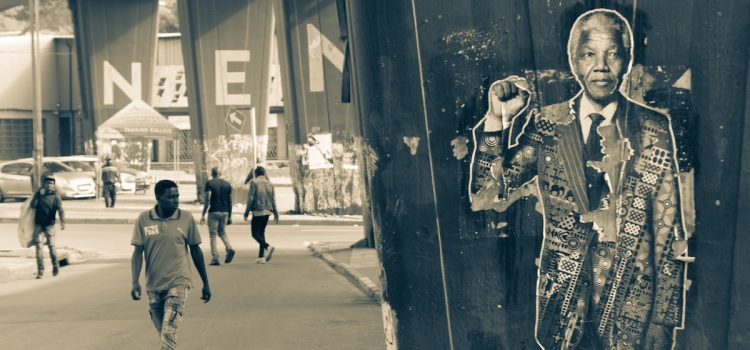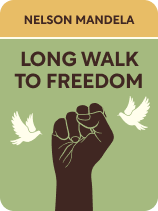

This article is an excerpt from the Shortform book guide to "Long Walk to Freedom" by Nelson Mandela. Shortform has the world's best summaries and analyses of books you should be reading.
Like this article? Sign up for a free trial here.
How did Nelson Mandela get involved in the struggle against apartheid? Why didn’t he stick to nonviolent methods?
Nelson Mandela fought against South Africa’s racist government policies and its system of apartheid from the 1940s to the 1960s. He then spent 27 years in prison, where he became a worldwide symbol of the South African struggle for freedom. He tells his story in Long Walk to Freedom.
Continue reading to see three Long Walk to Freedom quotes that provide insight into Mandela and his life.
Long Walk to Freedom Quotes
We share these Long Walk to Freedom quotes with a bit of explanation to help you understand the context of what Mandela is saying.
“There was no particular day on which I said, ‘Henceforth I will devote myself to the liberation of my people’; instead, I simply found myself doing so, and could not do otherwise.”
Mandela emphasizes that his struggle against the culture of oppression and apartheid wasn’t just about securing legal rights for Blacks but also about fostering national and racial pride. In short, Black South Africans had to believe that they deserved to be free and that they had the ability to rule themselves.
In the early 1940s, one of Mandela’s cousins introduced him to Walter Sisulu, a real estate broker and anti-apartheid activist. Sisulu arranged a clerk job for Mandela at one of the largest law firms in Johannesburg, where Mandela met another Black clerk named Gaur Radebe. Sisulu and Radebe were both heavily involved with the African National Congress (ANC), a political party that welcomed all Africans.
Inspired by Sisulu and Radebe, both of whom he greatly admired, Mandela soon became involved with the organization as well. Sisulu and Radebe thought the ANC was the best way, and perhaps the only way, for Black South Africans to effect political change.
“A freedom fighter learns the hard way that it is the oppressor who defines the nature of the struggle, and the oppressed is often left no recourse but to use methods that mirror those of the oppressor. At a point, one can only fight fire with fire.”
Mandela is known as one of history’s greatest peacemakers. In keeping with that reputation, as well as the ANC’s beliefs, he explains that he initially tried to fight back against discrimination and apartheid using nonviolent methods—strikes, petitions, and the like. Eventually, however, Mandela and other ANC leaders became disillusioned with peaceful, legal tactics; they concluded that Black South Africans would need to fight for their freedom.
“I learned that to humiliate another person is to make him suffer an unnecessarily cruel fate. Even as a boy, I defeated my opponents without dishonoring them.”
Here’s an example of this attitude. State President P. W. Botha didn’t just uphold the status quo of apartheid—he was one of its staunchest supporters, and he fought fiercely to protect apartheid at the height of the South African resistance. Numerous quotes from Botha show he firmly believed that apartheid was natural and just; that Black people should be subservient to white people, and that Blacks were happy in their inferior positions unless they were brainwashed to feel otherwise.
Despite this, Mandela had a great deal of respect for Botha. He praised the former state president for taking the first steps toward equality and peace in South Africa, rather than focusing on the years that Botha spent viciously defending apartheid. When Botha died in 2006, Mandela delivered a moving and heartfelt speech in his former jailer’s honor.

———End of Preview———
Like what you just read? Read the rest of the world's best book summary and analysis of Nelson Mandela's "Long Walk to Freedom" at Shortform.
Here's what you'll find in our full Long Walk to Freedom summary:
- Nelson Mandela’s extraordinary life story, as told by the man himself
- Why it took Mandela over 40 years to finish his law degree
- Nelson Mandela’s legacy and what South Africa is like in its post-apartheid years






